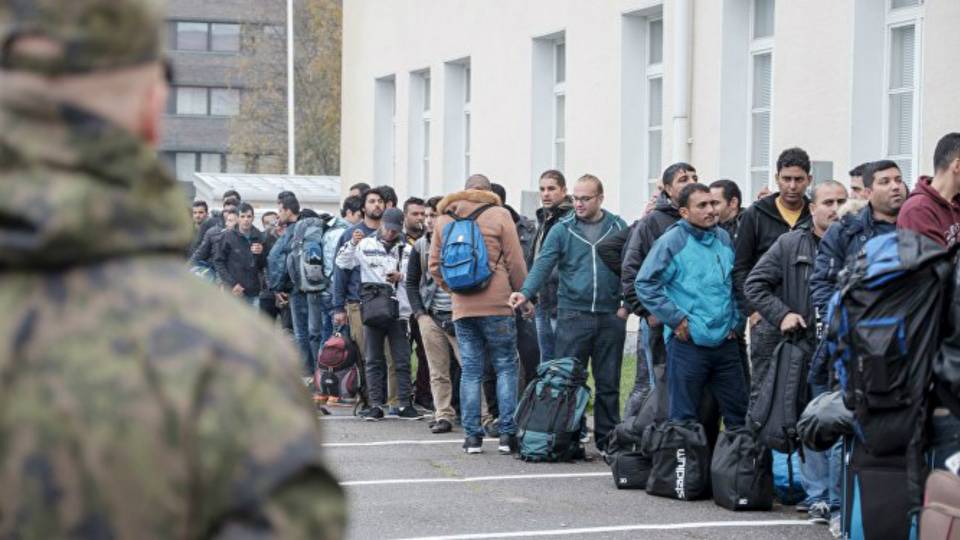Finland showdown with Brussels after Finns rule 77% of Iraqi migrants could be sent home
The Scandinavian state has taken a tough stance on new arrivals from Iraq, Afghanistan and Somalia after officially declaring the three ‘safe countries’.
The rule change has allowed Finnish ministers to deny 77 per cent of asylum applications from Iraqis last month, with those migrants now set to be deported back to the Middle East.
Finland became the 13th EU member state to draw up its own safe countries list earlier this year, following in the footsteps of the UK, Germany and France.
But the policy will cause friction with Brussels bureaucrats, who want a blanket list of ‘safe countries’, taking the power from member states’ hands.
The EU is calling for a single European list of safe countries which would mean member states would lose the ability to decide which migrants they can deport.
Jean-Claude Juncker’s EU Commission has tabled proposals for a blanket EU document, overseen by Brussels, which would initially comprise of just seven countries, all of which apart from Turkey are in eastern Europe.
The Commission said that such a system was “intended to reduce discrepancies among Member States in processing asylum claims”.
Tiny Finland, on the border with Russia, has received more than 30,000 migrants and asylum seekers trying to enter Europe through an alternative route over the last 18 months.
The country still has 17,000 pending asylum applications, of which 10,000 are from Iraq, 3,700 from Afghanistan, 1,500 from Somalia and fewer than 500 from war-torn Syria.
In June just 10 per cent of Iraqis were granted asylum in Finland - far down on the 22 per cent allowed to stay between January and May before the Middle Eastern country was officially declared safe.
The country has also encouraged thousands of migrants to return home of their own free will by paying for their flights through an assisted voluntary return scheme.
A spokesman for the Finnish Immigration Service said: “The share of negative decisions has increased significantly.
“The grounds for a negative decision are often that the applicant comes from an area where, at the moment, he or she can stay without being under serious and individual threat or the applicant has the possibility to receive internal protection in his or her home country.”
Europe has been in the grip of a growing migrant crisis which has exposed deep divisions between its 27 member states.
Huge numbers of new arrivals have brought the Schengen zone to the brink of collapse, with Austria becoming the latest EU country to announce the construction of a huge border fence to help control numbers.
Hungary is so against EU intervention it is holding its own referendum to let the public decide whether to accept an EU quota of migrants.






















